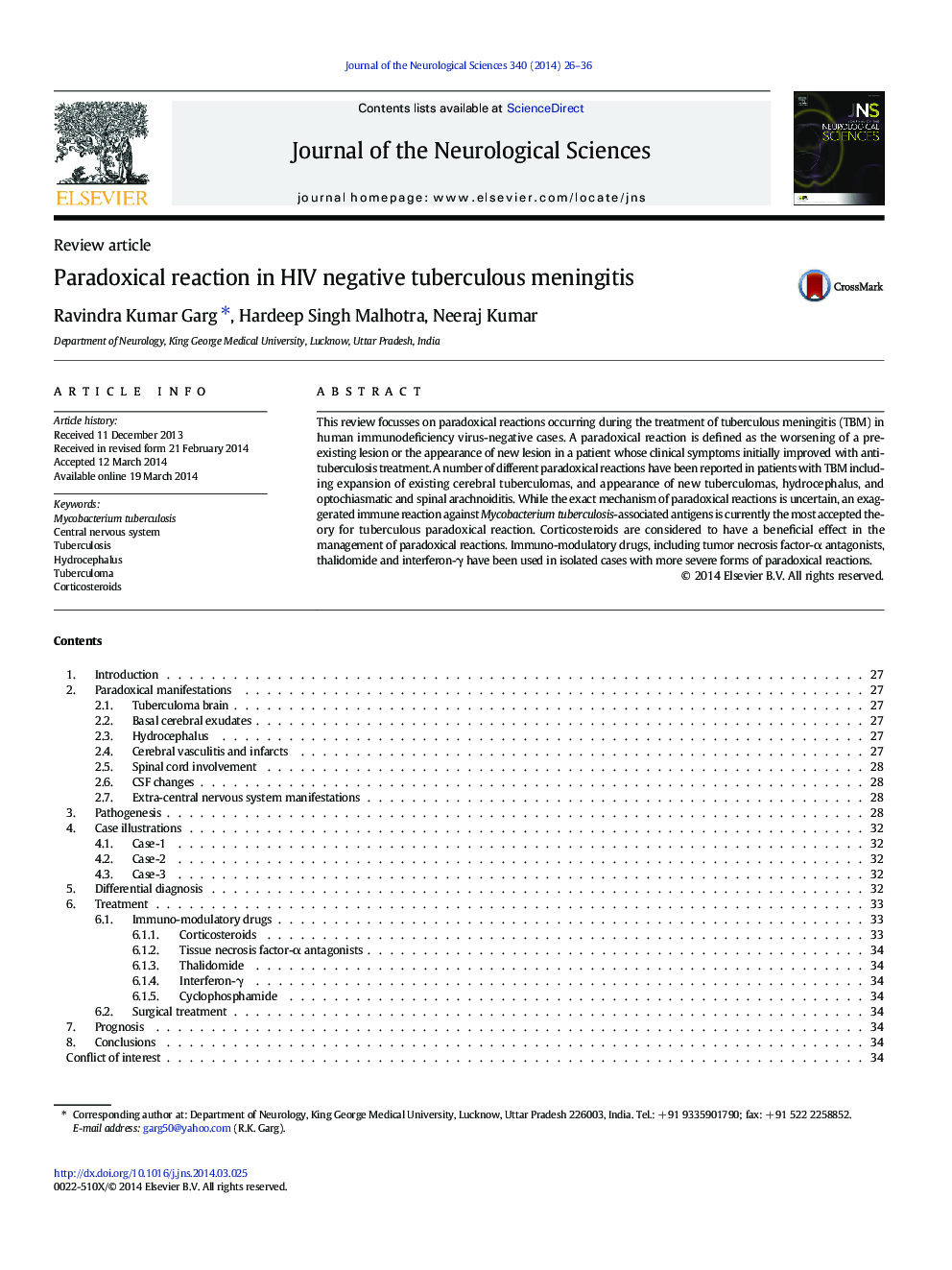| Article ID | Journal | Published Year | Pages | File Type |
|---|---|---|---|---|
| 8277199 | Journal of the Neurological Sciences | 2014 | 11 Pages |
Abstract
This review focusses on paradoxical reactions occurring during the treatment of tuberculous meningitis (TBM) in human immunodeficiency virus-negative cases. A paradoxical reaction is defined as the worsening of a pre-existing lesion or the appearance of new lesion in a patient whose clinical symptoms initially improved with anti-tuberculosis treatment. A number of different paradoxical reactions have been reported in patients with TBM including expansion of existing cerebral tuberculomas, and appearance of new tuberculomas, hydrocephalus, and optochiasmatic and spinal arachnoiditis. While the exact mechanism of paradoxical reactions is uncertain, an exaggerated immune reaction against Mycobacterium tuberculosis-associated antigens is currently the most accepted theory for tuberculous paradoxical reaction. Corticosteroids are considered to have a beneficial effect in the management of paradoxical reactions. Immuno-modulatory drugs, including tumor necrosis factor-α antagonists, thalidomide and interferon-γ have been used in isolated cases with more severe forms of paradoxical reactions.
Keywords
Related Topics
Life Sciences
Biochemistry, Genetics and Molecular Biology
Ageing
Authors
Ravindra Kumar Garg, Hardeep Singh Malhotra, Neeraj Kumar,
